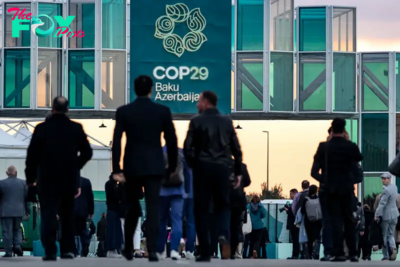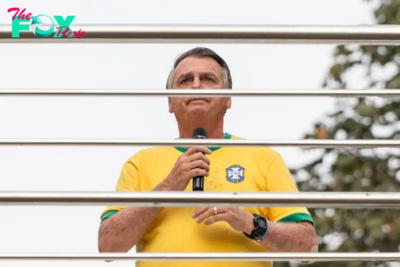World News
Putin’s Enemies are Struggling to Unite
Who’s really to blame for the war in Ukraine? Vladimir Putin and his government? Or Russia and its people? Under international law, the answer may seem obvious. The Russian President gave the orders for his Military to invade, and he carries ultimate responsibility. But in the 26 months since that calamitous decision, the question of blame has widened in the minds of many Ukrainians.
They now tend to see the weakness of the Russian anti-war movement as a mark of complicity among the Russian public, and they are dismayed by Putin’s approval rating: independent pollsters have measured it at over 80% support more than two years into the invasion. Even President Volodymyr Zelensky and his team have all but given up on their hopes of a popular backlash in Russia against the war. They are no longer inclined to believe in the existence of what they often call “Good Russians.”
Take the example of Mikhail Khodorkovsky, a leading figure in the Russian opposition movement. Once Russia’s wealthiest man, he has devoted his life to changing the regime in Russia, and he sees it as his mission to ensure that Putin loses the war. His commitment to the cause would seem to be beyond dispute: Khodorkovsky spent ten years in Russian prisons for his opposition to the Kremlin. But on a recent afternoon, as he sat at a bar in New York City and scrolled through the comments on his social media accounts, he saw little evidence that people in Ukraine appreciate his efforts. “It’s endless hate,” he told me of their messages. “For many Ukrainians, I'm just another Russian who attacked their country.”
Inside Ukraine, the only Russians who enjoy widespread acceptance and gratitude these days are the few who have taken up arms to fight alongside the Ukrainian army. At least two of these paraMilitary units exist on the battlefield, the Russian Volunteer Corps and the Free Russia Legion, and they have both staged small but deadly raids into Russian territory over the past two years, using weapons and equipment supplied by the Ukrainian armed forces.
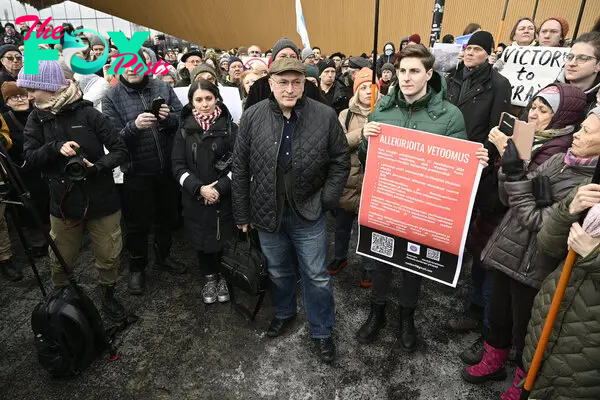
But most of Russia’s leading political dissidents do not support these groups or their tactics. Among the handful interviewed for this article, most agreed that the cross-border raids give fuel to Russian propaganda, helping Putin rally support among his people and recruit more soldiers to fight in Ukraine. When I asked Khodorkovsky what he thought of these paramilitaries, and whether he had considered joining their ranks, he smiled and shook his head: “There aren’t so many Russian politicians out there. So we would not change much by taking up arms,” he told me. “Besides, I’m not that good of a shot.”
As a politician, Khodorkovsky has responded to the invasion of Ukraine by helping to establish and lead the Anti-War Committee of Russia, a group of dissidents and public figures that regularly meets in Berlin to coordinate its activism. One of the key points in its manifesto states: “It was not the Russians who started this war, but a mad dictator.”
President Zelensky agreed with that position in the early days of the invasion. His historic speech on the eve of the attack was addressed to the Russian people in their own language, urging them not to believe Putin’s excuses for starting the war. In the days that followed, the protests that broke out across Russia gave Zelensky hope that the war might end through a popular uprising against the Kremlin.
But those hopes dimmed as the protests fizzled out, subsumed by a wave of arrests and mass repression. Soon the Ukrainian authorities came to see the Russian people as complicit in the war. “They’re not like you and me,” Zelensky’s close adviser, Mykhailo Podolyak, told me in early April 2022, about six weeks into the invasion, when we met in his office in the presidential compound in Kyiv. “For Ukraine, Russia is a country that has ceased to exist. They are nonhumans, monsters.”
Some of the worst atrocities of the Russian invasion had been discovered a few days earlier in the Kyiv suburb of Bucha, and they had, in the words of Podolyak, “completely changed the emotional backdrop of how Russia is perceived.” These changes affected the way many Ukrainians view all of Russian society — not only the ruling authorities but the Russian opposition movement, including its longtime leader, Alexei Navalny.
Navalny had been in prison for over a year when the invasion started, and he was quick to condemn it in his statements and letters, calling it a “war built on lies.” Addressing a Russian courtroom in May 2022, he said to Putin: "You will suffer a historic defeat in this stupid war that you started. It has no purpose or meaning.”
But in Ukraine, such statements were not enough to win much sympathy. Many remembered Navalny’s earlier position on the Russian annexation of Crimea in 2014. When asked about the land grab at the time, he equivocated, at one point declining to say whether Crimea should be returned to Ukrainian control. Those statements, as well as Navalny’s ties to Russian nationalists early in his political career, left a stain on his reputation among Ukrainians, and it lingered even after Navalny died in a Russian prison camp on February 16.
That afternoon, President Zelensky gave a speech at a summit of world leaders in Munich, and he mentioned Navalny in his remarks. “After the murder of Alexei Navalny,” he said, “it’s absurd to perceive Putin as a supposedly legitimate head of the Russian state. He is a thug who maintains power through corruption and violence. Coming to his so-called ‘inauguration,’ shaking his hand, considering him an equal means to disdain the very nature of political power.”
On that point, Zelensky was aligned with the Russian opposition movement. They have also called on world leaders not to recognize Putin’s re-election in March to a fifth term as president. Some of Navalny’s allies noted, however, that Zelensky did not express condolences to the dissident’s wife, Yulia Navalnaya, who also attended the summit in Munich and gave a moving speech from its main stage only a few hours after learning of her husband’s death.
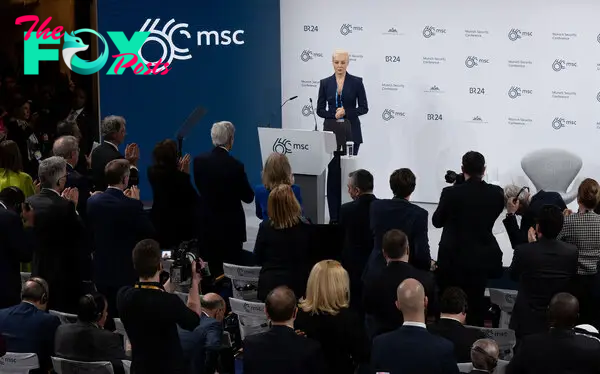
That same day, a senior member of Zelensky’s delegation passed by Navalnaya at the conference venue and did not stop to speak to her, according to two people familiar with the incident. Both said it added to the sense of estrangement between the Ukrainian leadership and their would-be allies in Russia. “He didn’t find even a word of sympathy in his soul for the family of Alexei Navalny,” said a close friend of the family, the Russian dissident and journalist Yevgenia Albats. “You know, that made me disappointed in Zelensky. I had thought he was bigger and deeper than that.”
In early April, about six weeks after Navalny’s death, I asked his wife about her feelings toward the Ukrainian leadership. Their interests are clearly aligned, she told me. They both want to see an end to the war and the downfall of the Putin regime. But Navalnaya, who has become a leader of the opposition since her husband’s death, did not see any immediate prospects for cooperation with Zelensky’s government. Though she may want to build such relations, she said: “It does not only depend on me.”
The debate around the existence of “Good Russians,” she added, feels deeply offensive to many of Navalny’s followers. Dozens of them have been imprisoned for speaking out against the war. Many thousands have fled their homes in Russia to escape the risk of being drafted to fight in Ukraine. “Regular Ukrainians understand that not all Russians are against them,” Navalnaya told TIME. “But when it comes to the Ukrainian government, I think it would be right for them to remember these people. This is clearly not Russia’s war. This is Putin’s war.”
No matter how controversial this position may be among Ukrainians today, it seems Russian politicians cannot avoid it. Too much of Russian society has already been entangled in the war. Khodorkovsky estimates that around 300,000 Russian men have signed up to fight in Ukraine since the invasion. Any government that may take power in Russia after the end of Putin’s reign, he says, would need to reckon with the fact that these soldiers have the rights of Russian citizens. “We would be forced to feed these 300,000 people, to educate them, to pay their pensions,” Khodorkovsky told me. “They would still be members of our society.” He paused before adding: “That doesn’t mean I agree with what they are doing in Ukraine.”
To make his point, he raised the example of the late German statesman Hans-Dietrich Genscher. During World War II, Genscher served as a soldier in the Wehrmacht, having been drafted as a teenager in 1943. Despite his brief membership in the Nazi Party during the war, he went on to serve as the foreign minister in post-war Germany. In 2013, when Genscher was long retired, he helped convince the Kremlin to release Khodorkovsky from prison. “Now, when we talk about these 300,000 people,” Khodorkovsky says, referring to Russian soldiers serving in Ukraine: “How would Ukrainians take the idea that one of them would one day become a Russian foreign minister?”
No doubt they would find such a prospect abhorrent, at least until Russian society undergoes a reckoning with the war and punishes those responsible for waging it, much as the Germans have tried to do for generations since the Holocaust. But in Ukraine today, including in the office of the president, few believe that Russian society would be willing or able to renounce the war and the imperialist instincts that have fueled it. “The difference is that these wounds won’t heal the way they did after World War II,” Podolyak, the adviser to Ukraine’s president, told me in the spring of 2022. “For the Germans there was repentance. For the Russians there will not be.”
When I discussed this question with Zelensky later that year, he had reluctantly come to agree with his adviser. For months the president of Ukraine had watched some of the leading intellectuals, Businessmen, artists and public figures in Russia fall in line behind Putin. Rather than condemning the war, many of them gave it their full-throated endorsements, including some of the actors and filMMAkers Zelensky knew from his earlier career in show Business.
Combined with the data he saw from public opinion polls in Russia — which showed consistently high support for Putin and the war — these attitudes convinced Zelensky that Russian society was all but lost. “Based on the reactions we have seen,” the President told me about ten months into the invasion: “They wish us death. They want our children to die.”
Zelensky expressed this view of Russia with much more sadness than anger in his voice. But many Ukrainians have harsher words for anyone who suggests that “Good Russians” still exist. Khodorkovsky, like many of his fellow Russian dissidents, has gotten used to hearing these insults. “When Ukrainians spout all this stuff against me on social media, I don’t answer,” he told me this month in New York. “They have the right. If it were me and my family getting bombed every day, I might have even worse things to say.”
-

 World News22h ago
World News22h agoWorld’s Best Brands – Brazil
-

 World News1d ago
World News1d agoWorld’s Best Brands – India
-
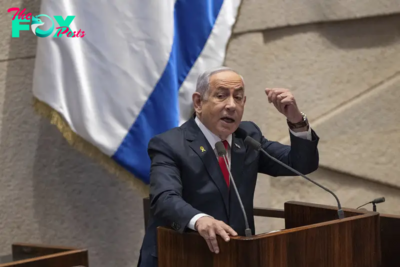
 World News2d ago
World News2d agoInternational Criminal Court Issues Arrest Warrants for Netanyahu and Hamas Commander
-

 World News2d ago
World News2d agoLandmark Bill to Ban Children From Social Media Introduced in Australia’s Parliament
-
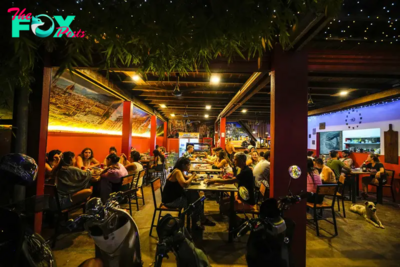
 World News2d ago
World News2d agoAmerican and Australian Tourists Die in Laos After Drinking Tainted Alcohol
-
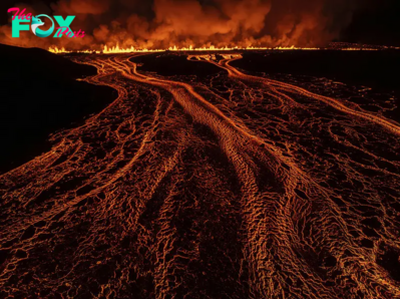
 World News2d ago
World News2d agoSee Photos of the Seventh Volcanic Eruption on Iceland’s Reykjanes Peninsula in 12 Months
-
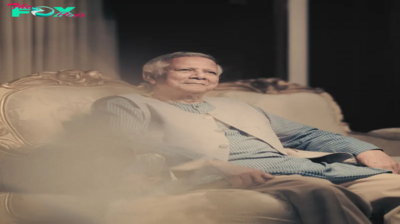
 World News2d ago
World News2d agoMuhammad Yunus on the Race to Build Bangladesh 2.0
-
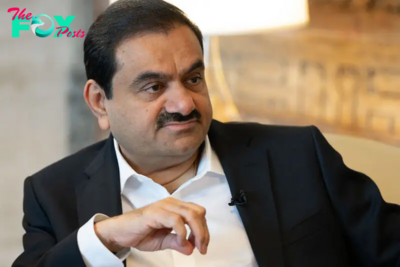
 World News2d ago
World News2d agoU.S. Charges Indian Billionaire Gautam Adani With Defrauding Investors
